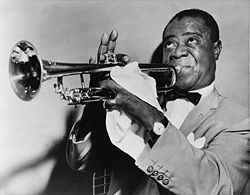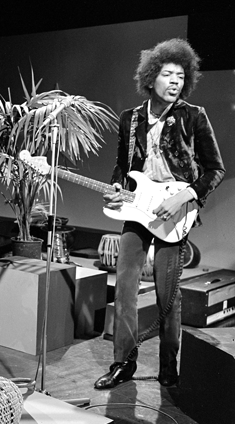

A hidden murder; a plaintive plea for mercy outside heaven's gate for one who found no mercy in life; a sad sorry horse doing circles 'round the course; blind cows; putting up a hell of a fight so the demons don't get you down -- I absolutely love Lindi Ortega's great new album, Cigarettes and Truckstops. The Grammy folks ain't gonna ask me, but if they did I'd say that this should win Record of the Year, Album of the Year, Song of the Year, Best Country Album, Best Country Song, Best Country Solo Performance, and Best New Artist -- seven in all. A nice, biblical number.
To help explain why I love it, let me back up a bit.
What kind of music do I love? The good kind. Ba-dum-bump.
(OK, I'm not going to leave it at that.)
What makes music good?
For me there are two basic qualities: enjoyment and honesty. Lindi Ortega's new album is overflowing with both. 
When it comes to good music, there are various ways we enjoy it.
First, the fun stuff. There's plenty of music I listen to simply because it's fun. There's lots of joy in that. Fun music has you smiling, tapping your foot or even dancing, singing along or whistling or humming. Basically, your body tells you if it's this type of good.
It may not be "deep." Well? Whoop-de-doo. It is what it is, and that's great. Heck, much of the time I don't want "deep" (whatever that is), I want fun -- a little mini-vacation from the stressors of the day. I'm so glad there's fun music to brighten my day. It's good because my body says it's fun -- even if some of it is formulaic and unimaginative, even if some of those who produced it primarily wanted to make a buck. My body doesn't care! Serious, hard-core fun... Yea.
A great example of serious fun is Joanne Neel's "Daddy Was a Preacher But Mama Was a Go-Go Girl" covered by Southern Culture on the Skids. You just can't beat lyrics like this: "Daddy preached fire and brimstone; Mama does the monkey all night long."
I'm telling you, there's a lot about my gig -- global warming -- that ain't fun. Fun is good. Me need fun. There's many a day I need mama doing the monkey all night long. Forget daddy and the fire and brimstone.
(If you want to check out how seriously I take my fun, see my "Girl Fun" iTunes list. I challenge anyone not to have fun listing to this list!)
Strangely enough, sad or melancholy music can help bring another type of joy, a paradoxical, cathartic joy; such music helps us feel stuff we need to feel, release emotional gunk clogging the arteries of our hearts. Tender examples include Jim Croce's "Operator," Emmylou Harris's "Boulder to Birmingham" and James Taylor's "Fire and Rain." (For more, see my Melancholy iTunes list.)
Then there's music that helps you reflect, maybe challenges you a bit -- reflective joy. Here's where "deep" music has its place. (Check out my Reflective Rock iTunes list.) Such songs get you thinking if you let them.
Finally, there is music that stimulates your brain due to its lyrical and musical creativity and even complexity, like Bach or John Coltrane.
The other quality that makes music good is honesty. What I mean here is music that forthrightly communicates something about the human condition from the artist's point of view. Such honest music comes from both the sounds produced and from the lyrics, if there are any.
Two clarifications. First, honest music could have deceptive lyrics, lyrics that have two meanings wherein the more literal or surface meaning is not the real meaning. Irony, even outright deception -- these are part of the human condition, too. Such music is honest when the artist is not fooling him or herself. He may be fooling some of us, the audience, but not himself.
Second, in forthrightly describing the human condition, honest lyrics can describe human actions that do not comport to the audience's morality, or that of the artist. Ortega's "Murder of Crows" is an excellent example of this. In the chorus she sings:
"Oh God, I've done it now. Please help this sinner out. Oh, no -- have mercy on my soul! Cause he's buried in the back near the tracks by the field of corn rows."
Good honest music must be performed with emotional honesty as well. We might say, "Wow, she really put it out there," or "Man, she laid it on the line." That's when we've experienced the artist's emotional honesty. Affectation? Gone. Trying to be like someone else? Gone. The artist truly feels it -- and it's them feeling it, not their idea of someone else feeling it.
 For emotional honesty, it would be hard to do better than Louis Armstrong and his trumpet. Some have criticized Armstrong for playing what they consider to be a stereotype on stage and screen, but I've never heard a lie come out of his trumpet.
For emotional honesty, it would be hard to do better than Louis Armstrong and his trumpet. Some have criticized Armstrong for playing what they consider to be a stereotype on stage and screen, but I've never heard a lie come out of his trumpet.
Good honest music can be performed with deep emotional honesty by a performer who is a consummate intentional liar in their personal lives, or someone so deep in denial or in the fantasy worlds they have created that they wouldn't know the truth if they stumbled over it.
Jimi Hendrix performed with emotional honesty, and himself is reported to have said that "Music doesn't lie." But he was truth-challenged in his personal life.
Emotional honesty sets a high bar. But when the artist gives it, and the audience allows such honesty to touch them, that's really something special.
Now good music may have only one of these qualities and still be good. It may be high on the fun scale, but low on the honesty scale -- but it's fun!
When it's high on multiple scales -- fun and honest, or honest and cathartic or reflective -- wow!
This is exactly what we have with Lindi Ortega's Cigarettes and Truckstops.
Ortega is a country music artist in the truest sense of those three words (and someone who respectfully subverts the form at times).
At its best, country music can be like Scripture in its spartan narrative evocations of human existence, pointing toward truths by telling stories in a few strokes, a poetic economy of words. Its raw, simple, for-folks-by-folks narratives and melodies can be embarrassingly honest, maybe even painfully corny to the sophisticatedly hip (including hip-wanna-be's like me).
While the farthest thing from corny, some of Ortega's songs on this album are quite funny and therefore high on the fun scale. (All transcriptions are done by me; apologies for any errors.)
For example, here's the beginning of "The Day You Die":
"You say you'd love me till the cows come home, well I'm hopin' that they all go blind,
Get lost then on some dirt back road, and just hang around for someone else to find.
You say you'd love me till the end of time, so I'm staring at that clock on the wall,
Every day I give that thing a wind, and pretend that I ain't waitin' on your call ...
Just don't say you'll love me till the day you die."
But a good number are embarrassingly honest, such as "Lead Me On":
"I'll know there will be pain, when you take the reins that lead me on,
There's nothin' much to gain, when you yank the chain that leads me on.
Just like a sad sorry horse doin' circles round a course, chasing after something I will never have,
Am I just spinnin' my wheels in this unfortunate ordeal,
It doesn't matter where the line is drawn, cause you always me lead me on."
Some of Orgeta's lyrics are straight-forward stories like the romantic title track "Cigarettes and Truckstops," or the haunting and even disturbing aforementioned "Murder of Crows."
But other songs appear to have both double meanings and multiple meanings, a multifaceted plethora of meaning. Double meanings refers to straight-forward irony or sarcasm or when something is figurative instead of literal, as is the case with "Demons Don't Get Me Down."
Multiple meanings occur when numerous interpretations are equally valid -- like light reflected off a diamond -- including meanings the artist may not have fully appreciated. Once artists set their creations free out into the world, such meanings come alive in the minds of their listeners.
This is exactly how I have experienced many of the songs on Cigarettes and Truckstops. Multiple meanings play in my head. "I think it means this ... no, maybe more this than that ... or maybe both simultaneously." How much more fun this is!
For example:
"If you wanna get your fix, darlin' use me ... I'll get you high in all the right ways ... go ahead and use me excessively ..." (from her song "Use Me").
Addiction as a subversive metaphor for what many might think of as romantic love? OK, but boy does it sound like co-dependency just might be hiding in plain sight here; or maybe this so-called "co-dependency" label is judgmental psychobabble that the song takes down a few notches. Or maybe she's just having fun tweaking addiction and love and throwing a playfully provocative thought-bomb into the room to see what happens next.
Even as the lyrics are an incredible feast, there's much more -- because it's all sung with an absolutely beautiful voice and style that fully brings forth the deep enjoyment and honesty of every one of the songs on the album. Every single note, every word is a symphonic interplay of the tender, soft-yet-enduring quality of her voice and her evocative, stylistic crafting of the lyrics that simply light up our brains, a neuronal fireworks extravaganza of enjoyment, honesty and meaning.
Not long after purchasing Cigarettes and Truckstops I was listening to it while riding the Metro (or subway) home; I'd probably just been reading the NYTimes and the Washington Post simply to occupy my mind and take me away from thinking about the meetings I'd had, and I'd grown tired of them as well. So my mind was just wandering, with the music in the background.
Then "Every Mile of the Ride" came on. The sounds were so dreamy, as were her voice and style. And that's what I thought to myself: "Wow, this sound is like a dream or a daydream."
And then I hear the second stanza:
"I was dreamin', daydreamin' dreamin' bout things that come true; I was dreamin' and hopin' and wishin', and then there was you; there by my side, every mile of the ride, every mile of the ride."
And there she was.
As "Every Mile of the Ride" so dreamily demonstrates, not only are the lyrics and her voice and style all out of this world, so too are the arrangements and the production.
Simply put: every song is an absolute gift, and her artistry makes the world a much better place.
I love them all and I love them differently, but "Heaven Has No Vacancy," whose chorus sings over and over, "Heaven has no place for me," has, indeed, a special place for me. It is wonderfully cathartic and deeply reflective, an incredibly effective challenge to Catholic teaching on suicide, but done quite tenderly through her art. It is not some militant juvenile diatribe railing against Church authority, but rather a song that vividly paints the picture of one in pain desperately pleading to be let in, a prodigal dying to be welcomed by the Father.
I will just say this (and please pardon this little sermonette): Christ was crucified outside the gate; cast out; cut off; bereft; he even felt abandoned by the Father. If heaven has no place for those who have fallen so quickly or deeply into despair that they take their own lives, one of God's greatest gifts, then I believe I know where Christ would be. Such a heaven just might not have a place for him, either.
At one point she sings, "If they don't let me in I'll just sit here on the stairs." She wouldn't be alone -- that's what my faith tells me.
Thank you, Lindi Ortega.
- Check out this absolutely wonderful video of Ortega sitting on a couch with her drummer performing "The Day You Die" acoustically, and then afterwards being interviewed about Cigarettes and Truckstops.
- I would love to see Ortega do an album interpreting Country standards in her own unique style. Here is a video from her website of a live performance of Johnny Cash's "Ring of Fire." I know it is probably heresy for me to say this, but I think hers is better! (And I'm a huge fan of Johnny Cash. His voice is the voice of America.)